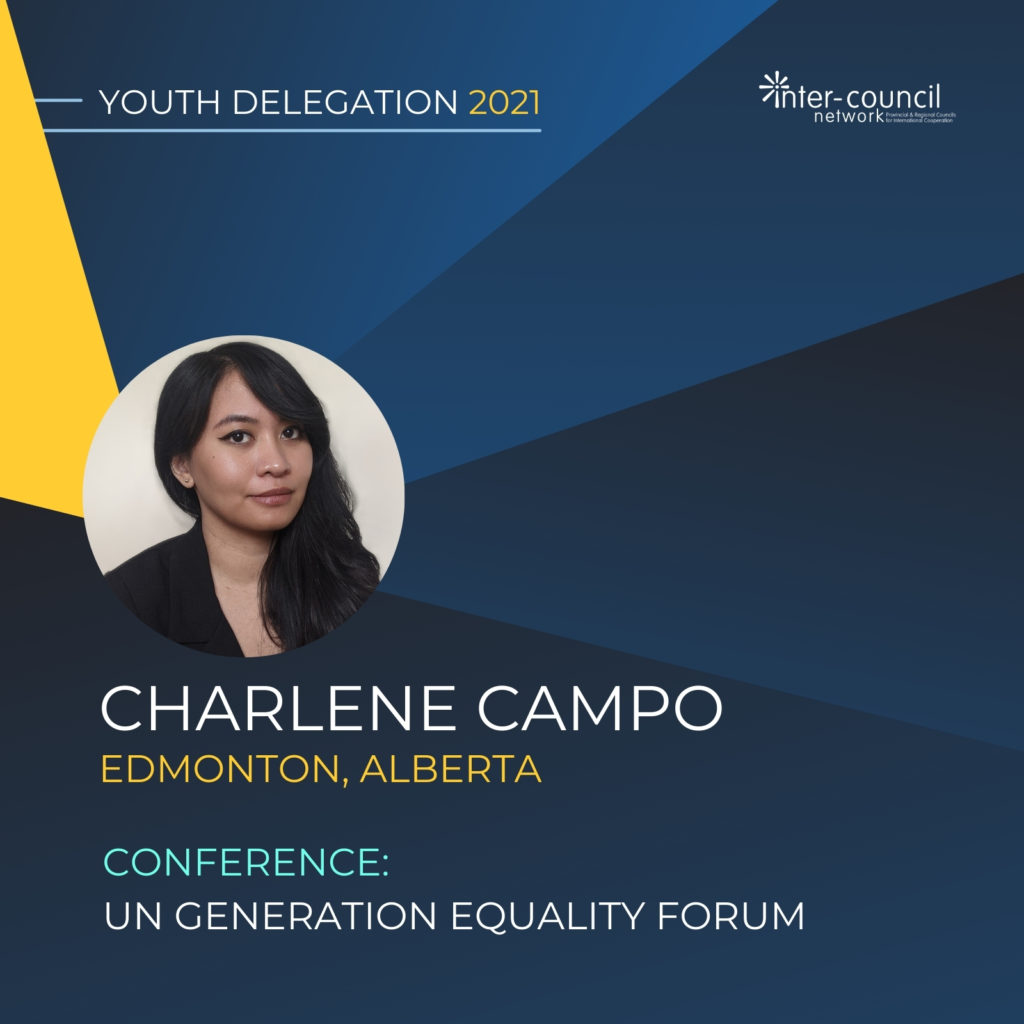
Charlene Campo | Edmonton, Alberta
Charlene is a passionate advocate for social justice and is currently living in Edmonton, Alberta. She is completing her Master of Arts in Gender and Social Justice degree at the University of Alberta. She is also working as a Researcher for Women’s Shelters Canada to support its historic project that will inform the framework and initial content of Canada’s 10-year National Action Plan on Gender-Based Violence.
Described by her colleagues as a change agent, Charlene has tried on hats as a bureaucrat at the federal and provincial levels, as a lobbyist, and as a political staffer. Having volunteered for many community organizations while working in various policy areas, she has subject matter expertise in the following areas: international labour rights, employment standards, labour relations, infection prevention and control, Indigenous rights, public safety, municipal governance, and anti-oppression.
About the UN Generation Equality Forum
Charlene attended the UN Generation Equality Forum, a civil society–centred, global gathering for gender equality, convened by UN Women and co-hosted by the governments of Mexico and France.
The Forum responds to the fact that despite the commitments made in Beijing in 1995 to take strategic, bold action on gender equality, progress and implementation has been slow. Not a single country today can claim to have achieved gender equality. With women’s rights at risk of rolling back further as a result of the COVID-19 crisis — due to heightened poverty and risks of gender-based violence — the Forum is a rallying point to finally achieve the human rights of all women and girls.
During this event, Charlene attended talks on the importance of women in leadership and women’s democratic participation, which she intends to share on her social media, and more importantly with community members in Edmonton who are doing work on this issue.
From Charlene's Blog 'Representation and Leadership: What’s in it for us?'
However, I find that the cause for having more representation for tends to lack substance because it assumes that simply adding women to existing structures and institutions would always lead to a more equitable society, even without interrogating and redistributing power. This time, I can think of several reasons why this is harmful:
- Increasing women’s representation alone does not achieve gender equality, gender is more complex than the binary.
- The ‘add women and stir’ approach invokes benevolent sexism which assumes that women are inherently more nurturing, altruistic, or oriented towards the collective;
- The belief that representation alone will lead to equity creates an impossible task for the few individuals from underrepresented communities to single-handedly solve cross-generational issues.
- Most importantly, politics is about the distribution of power and resources, which has life or death consequences. To simply obtain a seat at decision-making tables without developing and standing for politics that promote social justice is hollow and self-serving.








